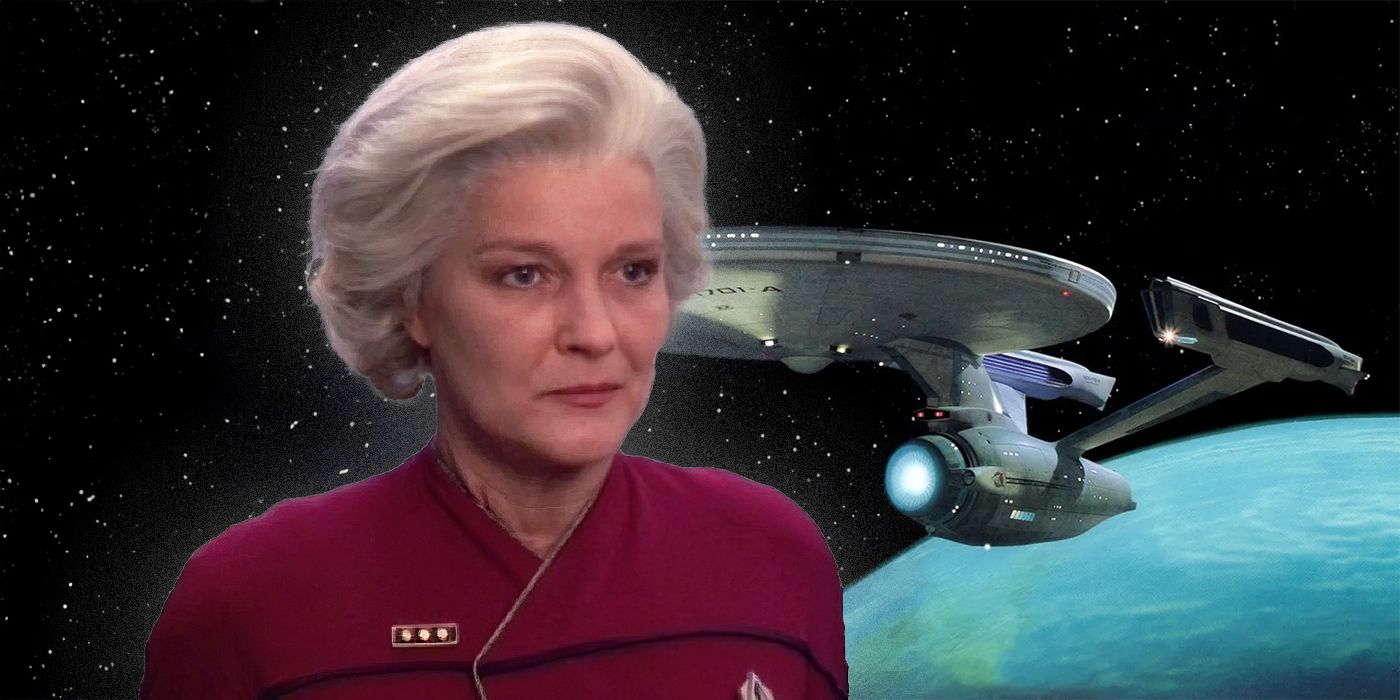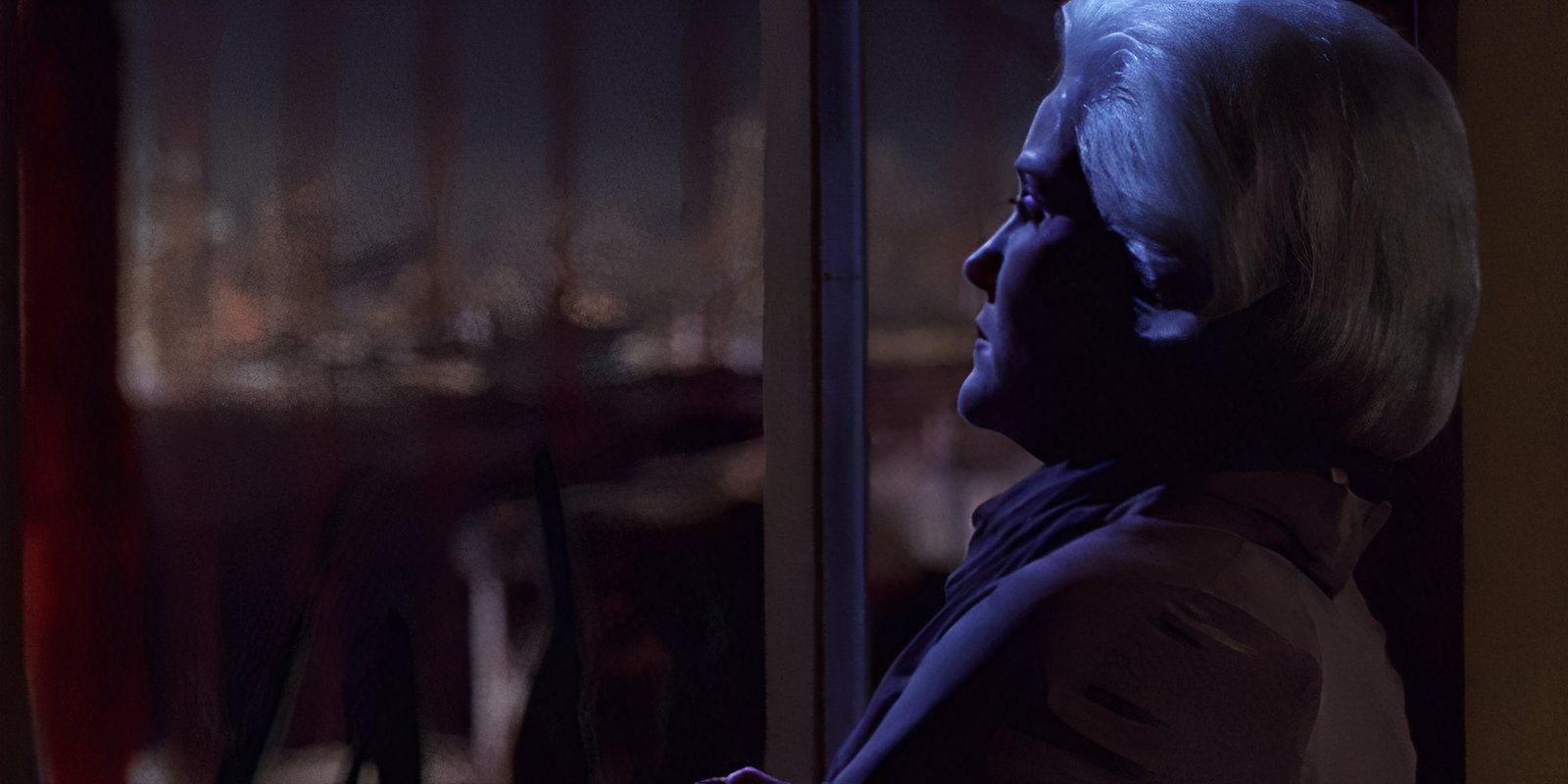Summary
- Admiral Janeway's time travel creates a paradox, preventing her future self from needing to go back in time.
- Following the Temporal Prime Directive ensures that time travel doesn't impact the future outcomes.
- Endgame Janeway's actions create a new timeline, allowing for co-existence of different versions of events.

Will the version of Admiral Kathryn Janeway (Kate Mulgrew) that appears in Star Trek: Prodigy eventually need to time travel to the past to make the events of Star Trek: Voyager's finale happen? In the series finale of Star Trek: Voyager, "Endgame", a future version of Admiral Kathryn Janeway travels from the year 2404 to 2378 to help the USS Voyager get home in only seven years using a Borg transwarp hub. In addition to avoiding the deaths of Commander Chakotay (Robert Beltran) and Seven of Nine (Jeri Ryan) that happened on Voyager's original 23-year journey, Admiral Janeway infects the Borg with a neurolytic pathogen that renders them dormant.
Future Janeway's actions in the past have significant weight, so Admiral Janeway's time travel in the future seems inevitable. Voyager has to get home in 2378, and the Borg have to be infected, because the effects of Future Janeway's Borg pathogen show up in Star Trek: Prodigy season 1, episode 12, "Let Sleeping Borg Lie", and in Star Trek: Picard season 3. Admiral Janeway in Star Trek: Prodigy remarks that she's starting to resemble the future version of herself that helped the USS Voyager get home, even though it's still about 20 years before Admiral Janeway would have to close the time loop by going back to 2378.
Admiral Janeway Doesn't Have To Go Back In Time After Star Trek: Prodigy
Star Trek: Voyager's Admiral Janeway Creates A Temporal Paradox
Admiral Janeway doesn't have to go back in time after Star Trek: Prodigy because Admiral Janeway in Star Trek: Prodigy has lived a very different life from her counterpart in Star Trek: Voyager's series finale. For the events of Star Trek: Voyager's series finale to take place, Janeway needs to experience the same horrible timeline that led the version of Admiral Janeway from 2404 in "Endgame" to make the decision to go back in time, but Future Janeway's actions guarantee time doesn't play out that way. Prime Janeway will have no reason to go back in time to prevent a bad future from happening if it never happens at all.
Starfleet's Temporal Prime Directive dictates a policy of non-interference in the past, much like the standard Prime Directive with pre-warp civilizations.
When Starfleet time travelers follow Star Trek's Temporal Prime Directive and don't interfere with history, traveling to the past has no effect on the future. Admiral Janeway ensures that a stable time loop can't happen because she intentionally changes the past, so the only possible outcome of Admiral Janeway's time travel in Star Trek: Voyager's "Endgame" is a temporal paradox that prevents Janeway's time travel from even occurring. This should overwrite the stretch of time between 2378 and 2404 that Admiral Janeway originally experienced, but that can't happen because Admiral Janeway from 2404 still has to exist somewhere in order to go back to the past in the first place.
Admiral Janeway's Star Trek: Voyager Finale Time Travel Created A New Timeline
Endgame Janeway's Past Has To Exist In The Star Trek Multiverse

In Star Trek: Voyager's finale, "Endgame", Admiral Janeway's attempt to rewrite the past actually creates a new timeline. From a linear perspective, Endgame Janeway comes from an original timeline, in which the USS Voyager takes 32 years to get home from the Delta Quadrant and the Borg remain a threat to the Federation. Because Admiral Janeway from 2404 goes back in time to change the past, the timeline splits into a new branch in 2378, in which the USS Voyager gets home after only 7 years in the Delta Quadrant, Janeway renders the Borg dormant, and Admiral Janeway doesn't have to travel back in time to save herself.
The events of Star Trek's Prime Timeline don't overwrite Admiral Janeway's original timeline, or any other timeline that appears to come first; instead, the timelines co-exist. The fact Admiral Janeway has already experienced her own past in "Endgame" doesn't change. Because Admiral Janeway remembers the 26 years between 2378 and 2404 even after going back in time, Endgame Janeway's original timeline must still exist within the Star Trek multiverse, chugging along without its Admiral Janeway. The Prime Timeline also continues after Star Trek: Voyager, with our own version of Admiral Janeway who never needs to travel back in time to make sure "Endgame" happens.



